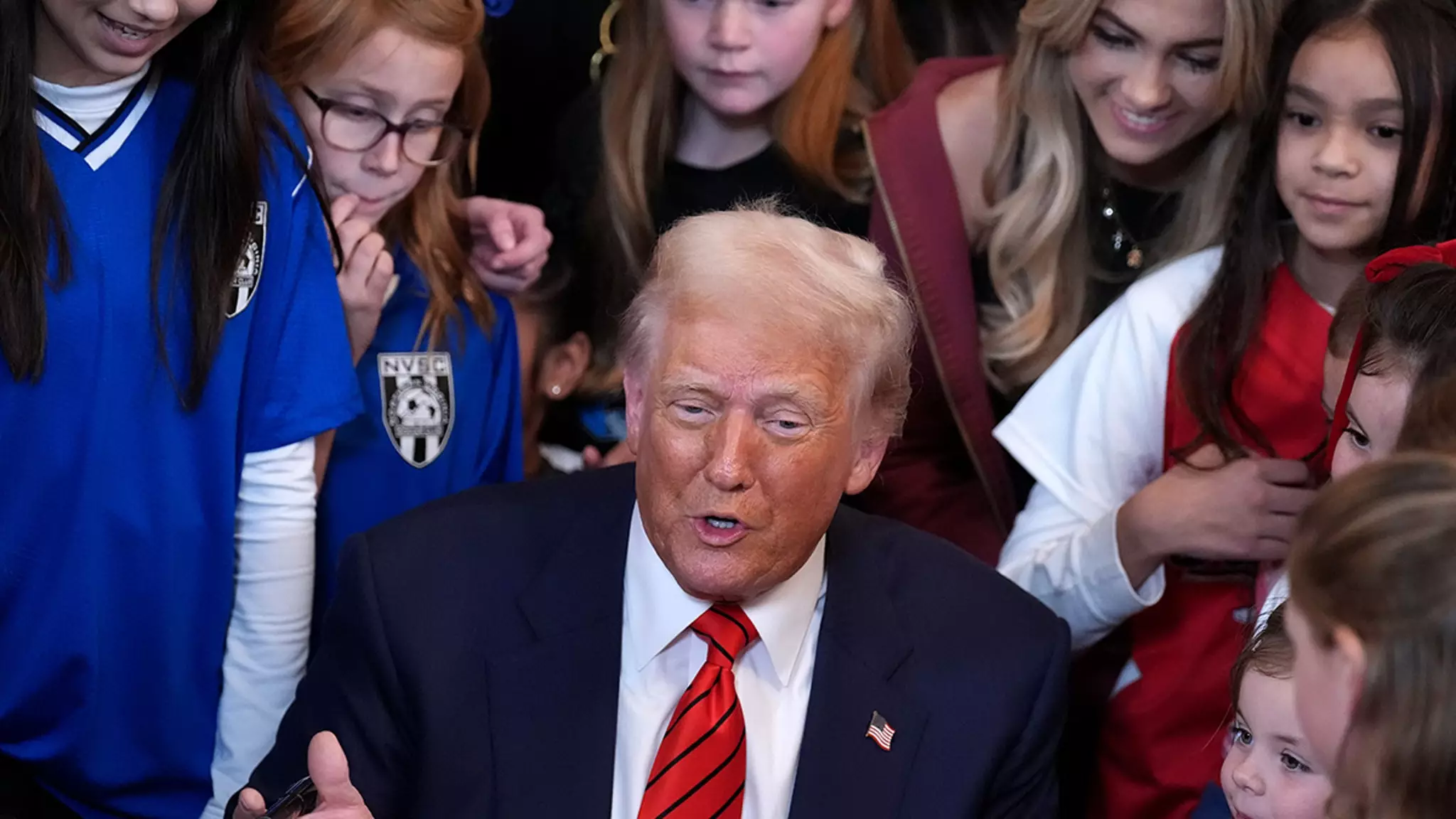In a significant and controversial move, former President Donald Trump has made headlines once again by signing an executive order aimed at restricting transgender women—biological males transitioning to female—from competing in women’s sports. The directive, dubbed “Keeping Men Out of Women’s Sports,” was signed during a ceremonial event at the White House and has become a hot-button issue across the nation. Trump passionately declared that this mandate will signify the end of female athletes being outperformed by their male counterparts, an issue he alleges has plagued the integrity of women’s sports.
Under this executive order, the Education Department is granted broader authority to withdraw federal funding from educational institutions that permit transgender athletes to participate in competitions intended for women. This presents substantial ramifications for schools that are currently trying to navigate the complexities of inclusivity and gender identity in athletics. The threat of losing federal funds could coerce schools into adopting policies that exclude transgender athletes, thereby impacting team rosters and opportunities for many hopeful athletes.
Moreover, Trump’s remarks also hint at potential changes for larger sporting events. He expressed his desire for the forthcoming Los Angeles Olympic Games in 2028 to align with his vision, seeking to impose stricter regulations that would ensure that only cisgender women participate in women’s events. This consideration opens a plethora of debates surrounding athlete identity and the rights of transgender individuals to compete.
The backlash from advocacy groups was swift. Kelley Robinson, President of the Human Rights Campaign, criticized the executive order, arguing that it could lead to heightened levels of harassment and discrimination against young people. Such comments underline the divide in public opinion surrounding the issue, where the rights and recognition of transgender athletes often clash with the perceived rights of cisgender women in competitive sports. Robinson’s assertion that sports should foster a sense of belonging rather than exclusion encapsulates the emotional stakes involved in this debate.
This unfolding saga forms part of a larger cultural narrative where discussions about gender identity, sport, and fairness are at the forefront of public discourse. It also reveals the rising contention regarding the intersection of sports, politics, and social rights, challenging traditional notions of gender in athletic competition. Supporters argue that without these measures, women’s sports will lose their integrity, while opponents contend that inclusion for transgender individuals is a matter of human rights and equality.
Trump’s executive order marks a pivotal point in the ongoing debate about transgender rights in athletics. As supporters cheer the assertive decision for protecting women’s sports, opponents foresee a future where the rights of minority groups are sidelined. As society grapples with these intricacies, the discussions initiated by this order will likely continue to profoundly shape both the landscape of sports and the broader societal norms surrounding gender identity. The conversation remains complex and nuanced, as advocates on both sides push for what they believe constitutes fairness in competition.

